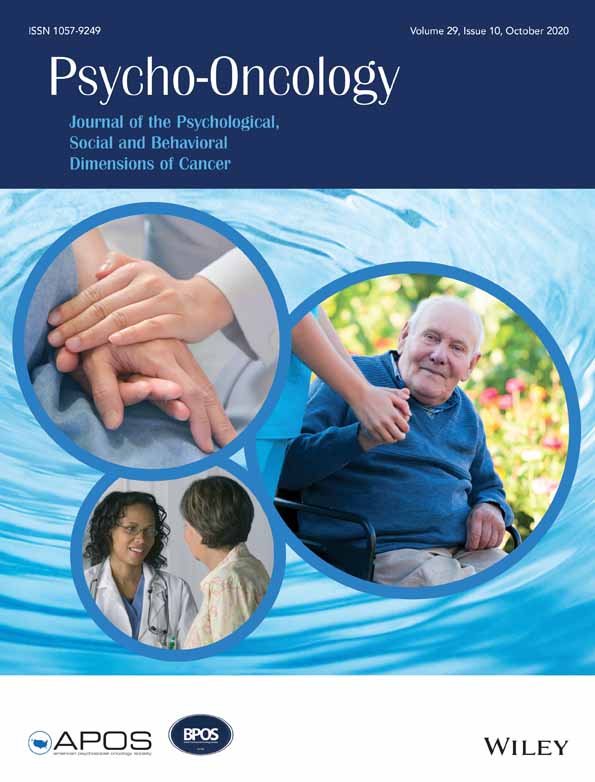Self-concept and health anxiety relate to psychological outcomes for BRCA1/2 carriers
Abstract
Objective
Leventhal's common sense model of self-regulation highlights how specific beliefs about illness influence psychological outcomes. Little is known on how such beliefs relate to BRCA1/2 adjustment. Furthermore, beliefs about one's self-concept may be relevant to genetic conditions and may relate to psychological wellbeing.
Methods
One-hundred and eighteen female BRCA1/2 carriers from an Irish University Hospital completed questionnaires for this cross-sectional study. Outcomes measured were state anxiety and physical and mental health-related quality of life (HRQOL). Explanatory variables included sociodemographics, health anxiety, illness perceptions, coping and self-concept. Hierarchical multiple regression analyses were conducted.
Results
Then, 44% of participants had clinically significant state anxiety and 12% had clinically significant health anxiety. Vulnerability, stigma, mastery and health anxiety explained 42% of the variance in state anxiety. Previous mental health difficulty, vulnerability, stigma, mastery and health anxiety explained 40% of the variance in mental HRQOL. Dysfunctional coping strategies were strongly related to the physical functioning aspect of quality of life.
Conclusion
BRCA-specific beliefs related to self and health anxiety are important factors to consider in the adjustment to BRCA1/2 confirmation.
CONFLICT OF INTEREST
The authors declare no conflict of interests.
Open Research
DATA AVAILABILITY STATEMENT
The data that support the findings of this study are openly available in [OSF] at http://doi.org/[doi], reference number [10.17605/OSF.IO/52BTZ].




